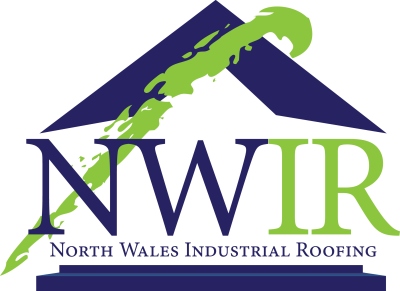A Quick Guide to Understanding the Best Material For Your Industrial Roof
Looking for a new industrial roof installation? Can’t decide which roof is right for you? Take a look at some of the different options you can consider below to see which one fits your requirements.
Felt Roofing
Made from a lightweight material, felt roofing systems provide watertight protection from the elements. Because of the nature of the material, it is susceptible to damage from sharp items and isn’t as durable as other types of roofing systems but still provides relative long-term protection. Depending on your installation requirements, felt roofing systems can be applied either fully cold or by the traditional torch-on method.
To match your budget, felt roofing systems can either be installed as single layer overlay systems, or for full adherence to current warm roof regulations, be installed as fully insulated roof build-ups. To eliminate the chances of ponding water, which can be extremely detrimental to industrial roofing systems, tapered insulation schemes can be incorporated.nOverall, felt roofing systems are a cost-effective roofing system solution.
Liquid Applied Roofing
A great benefit of liquid applied roofing is that it seals seamlessly, even around tricky protrusions and hard to reach areas such as pipes, drains and air conditioning machines. Liquid applied roofing systems are applied directly on top of existing roofing systems which reduces installation time and costs; and means your business downtime will be significantly reduced too, saving you even more money.
The monolithic membrane of liquid applied roofing gives it a superior waterproofing solution as it is able to expand and contract in differing temperature conditions. Other benefits include extended roof life, reduced roof maintenance and eco-friendly qualities.
Single Ply Membrane
Because single ply membrane material is lightweight, can be installed relatively quickly and only one layer is required, this type of roofing is an extremely cost-effective solution. For larger roofing schemes, materials which are high quality and CE certified, can be imported from overseas manufacturers with heavily discounted costs. If you’re looking for a quick turnaround with minimal disruption, single ply membrane is great because it works as an overlay material on existing flat roofing systems.
To suit different budget requirements, single ply membrane can be installed with or without insulation. Application methods vary and can be mechanically fixed, torch applied or adhered for a watertight solution that is guaranteed long-term. Another benefit of single ply membrane is that it is available in a range of colours and finishes to complement your existing building aesthetic.
Which one is right for you?
Still not sure which roofing system is right for you? Give the team a call at NWIR, we can discuss your options and recommend the best type of system for your commercial or industrial building. For more information on any of our commercial & industrial roofing services you can take a look around our website.
